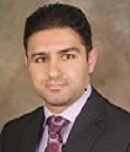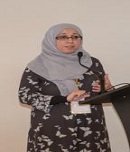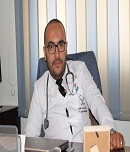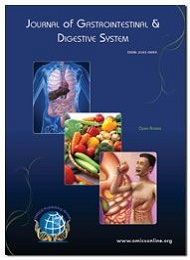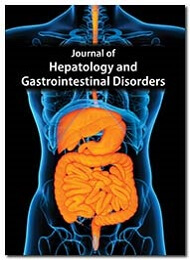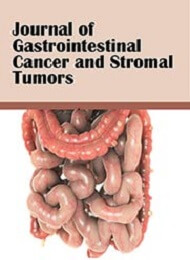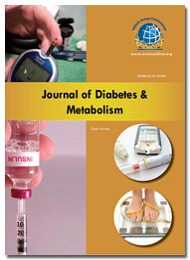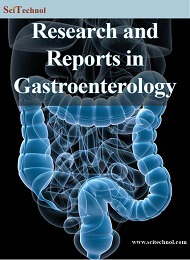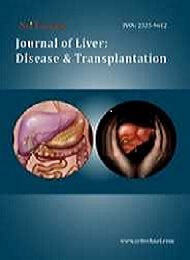Theme: Focus on treatment modalities and Gastroenterology case reports
Gastro Congress 2017
- Glimpses of Gastro Congress 2016
- Welcome Message
- Sessions/ Tracks
- About Conference
- Market Analysis
- Past conference
Welcome...!!!
Dear Colleagues & Fellow Researchers,
As a member of the organizing committee, I invite all Participants who are fascinated in ‘Digestive health’ to attend The 12th Euro-Global Gastroenterology Conference (Gastro Congress 2017) during September 11-12, 2017 in Paris, FR which includes Keynote presentations, Oral presentations, Poster presentations, and Exhibitions.
Gastro Congress 2017 will be a valuable and important platform for inspiring international and interdisciplinary exchange at the forefront of basic and applied research on Gastroenterology. The market for gastrointestinal therapeutics is rapidly expanding with a global market size of $35.7 in 2015 and a forecast for growth to $48.4 billion in 2022. To address the emerging markets and innovations in therapeutics the main theme of Gastro Congress 2017 is "Focus on Treatment Modalities".
Gastro Congress 2017 will also provide the excellent opportunity to meet world leaders in digestive health, cutting-edge researchers, learn about the newest technology innovations, and foster alliance among elite professionals from both academia and industry. A diverse spectrum of professionals in healthcare and industry converge in a spirit of international collaboration in the ambiance of Paris.
Gastro Congress 2017 is an interactive and dynamic learning experience for students, resident physicians, specialists, scientists, industry leaders and business professionals in digestive health. We anticipate participants across the globe for this spectacular two- day conference which will provoke robust discussions on recent advancements and new technologies for the development of new treatments in digestive healthcare.
We look forward to meeting you at our event…!!!
Gerard E. Mullin MD
Chair, Organizing Committee, Gastro Congress 2017
Co-Director, JHH Nurse Practitioner Fellowship Program,
Associate Professor of Medicine,
The Johns Hopkins University
USA
Gastroenterology is the branch of medicine focused on the digestive system and its disorders. Diseases affecting the gastrointestinal tract, which include the organs from mouth to anus, along the alimentary canal, are the focus of this speciality. Physicians practicing in this field are called gastroenterologists. Hepatology, or hepatobiliary medicine, encompasses the study of the liver, pancreas, and biliary tree, and is traditionally considered a sub-specialty.
Related: Gastroenterology Conferences | ConferenceSeries Ltd: 12th Euro-Global Gastroenterology Conference September 11-12, 2017 Paris, France; JDDW 2016 - Japan Digestive Disease Week 2016, November 3-6, 2016, Kobe, Japan; ISGCON 2016: 57th Annual Conference of Indian Society of Gastroenterology December 15-18, 2016; Innovations in Gastroenterology, January 4-6, 2017, Hilton Hotel; Canadian Digestive Diseases Week (CDDW) 2017, March 3, 2017 - March 6, 2017, Canada; World Congress of Gastroenterology at ACG 2017 13-18 October 2017 in Orlando, Florida, USA; 6th Congress of Gastroenterologists and Hepatologists in Bosnia and Herzegovina, May 17-20, 2017, Bosnia and Herzegovina; Society of Pediatric Gastroenterologists and Dieticians of Uzbekistan Annual Meeting, January 26, 2017, Tashkent, Uzbekistan; World Gastroenterology Organization; American Gastroenterological Association; Canadian Association of Gastroenterology; NC Society of Gastroenterology; Emirates Gastroenterology and Hepatology Society; SCSG - Southern California Society of Gastroenterology; Florida Gastroenterological Society; European Association for Gastroenterology and Endoscopy; Ontario Association of Gastroenterology; British Society of Gastroenterology; United European Gastroenterology; American Society for Gastrointestinal Endoscopy; European Association for the Study of the Liver; Gastroenterological Society of Australia; The Asian Pacific Association for the Study of the Liver.
Gastrointestinal Complications in Diabetes
Gastrointestinal (GI) disorders are common among all people, including those affected by diabetes. At some point in any patient's life, the chances that he or she will develop a GI tract problem, be it peptic ulcer disease, gallstones, irritable bowel syndrome, food poisoning, or some other malady, are extremely high. 75% of patients visiting diabetes clinics will report significant GI symptoms. The entire GI tract can be affected by diabetes from the oral cavity and esophagus to the large bowel and anorectal region. Common complaints may include dysphagia, early satiety, reflux, constipation, abdominal pain, nausea, vomiting, and diarrhea. Many patients go undiagnosed and under-treated because the GI tract has not been traditionally associated with diabetes and its complications.
Both acute and chronic hyperglycemia can lead to specific GI complications. Diabetes is a systemic disease that may affect any organ systems, and the GI tract is no exception. As with other complications of diabetes, the duration of the disorder and poor glycemic control seem to be associated with more severe GI problems.
Related: Gastroenterology Conferences | ConferenceSeries Ltd:
Role of the Gastroenterologist in Managing Obesity:
The gastroenterologist, whether in academic or clinical practice, must face the reality that an increasingly large percentage of adult patients are morbidly obese. Morbid Obesity is associated with significant morbidity and mortality including enhanced morbidity from cardiovascular, cerebrovascular, hepatobiliary and colonic diseases. Most of these associated diseases are actually preventable. Available treatments for obesity include diet and exercise, behavioral modification, medications and surgery. Gastroenterologists are becoming increasingly involved in the care of obese patients. Although much of this care has historically centered on the preoperative and postoperative care of the bariatric patient, gastroenterologists are also evaluating and managing a variety of gastrointestinal symptoms and disorders that occur more commonly among obese individuals and are increasingly involved in the primary treatment of Obesity. In this review, the gastrointestinal symptoms and disorders that are associated with obesity will be reviewed, the gastrointestinal contribution to the pathogenesis of obesity will be described and the current treatment options of Obesity and where the gastroenterologist typically plays a role in the management.
Related: Gastroenterology Conferences | ConferenceSeries Ltd: 12th Euro-Global Gastroenterology Conference September 11-12, 2017 Paris, France; JDDW 2016 - Japan Digestive Disease Week 2016, November 3-6, 2016, Kobe, Japan; ISGCON 2016: 57th Annual Conference of Indian Society of Gastroenterology December 15-18, 2016; Innovations in Gastroenterology, January 4-6, 2017, Hilton Hotel; Canadian Digestive Diseases Week (CDDW) 2017, March 3, 2017 - March 6, 2017, Canada; World Congress of Gastroenterology at ACG 2017 13-18 October 2017 in Orlando, Florida, USA; 6th Congress of Gastroenterologists and Hepatologists in Bosnia and Herzegovina, May 17-20, 2017, Bosnia and Herzegovina; Society of Pediatric Gastroenterologists and Dieticians of Uzbekistan Annual Meeting, January 26, 2017, Tashkent, Uzbekistan; World Gastroenterology Organization; American Gastroenterological Association; Canadian Association of Gastroenterology; NC Society of Gastroenterology; Emirates Gastroenterology and Hepatology Society; SCSG - Southern California Society of Gastroenterology; Florida Gastroenterological Society; European Association for Gastroenterology and Endoscopy; Ontario Association of Gastroenterology; British Society of Gastroenterology; United European Gastroenterology; American Society for Gastrointestinal Endoscopy; European Association for the Study of the Liver; Gastroenterological Society of Australia; The Asian Pacific Association for the Study of the Liver.
Microbiota in health and gastrointestinal disease:
The human gut microbiota has become the subject of extensive research in recent years and our knowledge of the resident species and their potential functional capacity is rapidly growing. Our gut harbours a complex community of over 100 trillion microbial cells which influence human physiology, metabolism, nutrition and immune function while disruption to the gut microbiota has been linked with gastrointestinal conditions such as inflammatory bowel disease and obesity. Here, we review the many significant recent studies that have centered on further enhancing our understanding of the complexity of intestinal communities as well as their genetic and metabolic potential.
Related: Gastroenterology Conferences | ConferenceSeries Ltd:
Diets/Dietary habits (Nutrition) and Gastrointestinal Disorders:
The role of diet and dietary habits including fibers, food additives and preservatives on the aetiology of gastric cancers, colorectal cancers and other G.I disorders in the tropics are herein reviewed. Carcinomas of the gut believed to be on the decline in the developed countries have plateaued and increasing cases are being reported in the tropics. Africa and Nigeria in particular, with little or no cases previously are currently experiencing patterns of incidence similar to those of the Western Hemisphere. All these developments are premeditated by the nature of diets and dietary factors contained therein. Some of these factors contain chemical carcinogens, irritants as additives or preservatives, high cholesterol, highly spiced foods, alcohol, nicotine, xanthines, caffeine, most of which provoke gastric acid secretions dyspepsia and heartburn, and they lack vegetables and dietary fibres known to protect the G.I tract against various diseases. The roles of dietary hygiene implicating certain microorganisms associated with G.I diseases like Helicobacter Pylori are also discussed.
What you eat can contribute to digestive problems. Many people eat too much processed food and sugar, and not enough fiber, fruits, and vegetables. Poor eating habits, such as eating too quickly or skipping meals, can also be part of the problem. Many digestive problems can be prevented by eating a healthy, balanced diet.
Related: Gastroenterology Conferences | ConferenceSeries Ltd: 12th Euro-Global Gastroenterology Conference September 11-12, 2017 Paris, France; JDDW 2016 - Japan Digestive Disease Week 2016, November 3-6, 2016, Kobe, Japan; ISGCON 2016: 57th Annual Conference of Indian Society of Gastroenterology December 15-18, 2016; Innovations in Gastroenterology, January 4-6, 2017, Hilton Hotel; Canadian Digestive Diseases Week (CDDW) 2017, March 3, 2017 - March 6, 2017, Canada; World Congress of Gastroenterology at ACG 2017 13-18 October 2017 in Orlando, Florida, USA; 6th Congress of Gastroenterologists and Hepatologists in Bosnia and Herzegovina, May 17-20, 2017, Bosnia and Herzegovina; Society of Pediatric Gastroenterologists and Dieticians of Uzbekistan Annual Meeting, January 26, 2017, Tashkent, Uzbekistan; World Gastroenterology Organization; American Gastroenterological Association; Canadian Association of Gastroenterology; NC Society of Gastroenterology; Emirates Gastroenterology and Hepatology Society; SCSG - Southern California Society of Gastroenterology; Florida Gastroenterological Society; European Association for Gastroenterology and Endoscopy; Ontario Association of Gastroenterology; British Society of Gastroenterology; United European Gastroenterology; American Society for Gastrointestinal Endoscopy; European Association for the Study of the Liver; Gastroenterological Society of Australia; The Asian Pacific Association for the Study of the Liver.
Gastroenterology and Pharmacotherapy:
The medical management of patients with gastrointestinal diseases is advancing rapidly. Specific attention was given to the future prospects for medical management of 3 common gastrointestinal disease areas: antisecretory therapy, chronic hepatitis C, and inflammatory bowel disease. Newer strategies to eradicate hepatitis C virus infection using different interferons, such as interferon alfacon-1 or higher doses of peginterferon, or long-term maintenance peginterferon, are undergoing study and show promise based on data from preliminary studies. Several immunomodulators have promise in inflammatory bowel disease, although the risk-benefit ratio and costs of therapy require evaluation. Nevertheless, the success of new biologics such as anti-TNFα agents augurs well for effective future therapies.
Related: Gastroenterology Conferences | ConferenceSeries Ltd: 12th Euro-Global Gastroenterology Conference September 11-12, 2017 Paris, France; JDDW 2016 - Japan Digestive Disease Week 2016, November 3-6, 2016, Kobe, Japan; ISGCON 2016: 57th Annual Conference of Indian Society of Gastroenterology December 15-18, 2016; Innovations in Gastroenterology, January 4-6, 2017, Hilton Hotel; Canadian Digestive Diseases Week (CDDW) 2017, March 3, 2017 - March 6, 2017, Canada; World Congress of Gastroenterology at ACG 2017 13-18 October 2017 in Orlando, Florida, USA; 6th Congress of Gastroenterologists and Hepatologists in Bosnia and Herzegovina, May 17-20, 2017, Bosnia and Herzegovina; Society of Pediatric Gastroenterologists and Dieticians of Uzbekistan Annual Meeting, January 26, 2017, Tashkent, Uzbekistan; World Gastroenterology Organization; American Gastroenterological Association; Canadian Association of Gastroenterology; NC Society of Gastroenterology; Emirates Gastroenterology and Hepatology Society; SCSG - Southern California Society of Gastroenterology; Florida Gastroenterological Society; European Association for Gastroenterology and Endoscopy; Ontario Association of Gastroenterology; British Society of Gastroenterology; United European Gastroenterology; American Society for Gastrointestinal Endoscopy; European Association for the Study of the Liver; Gastroenterological Society of Australia; The Asian Pacific Association for the Study of the Liver.
Palliative care is indicated for patients with any serious illness and who have physical, psychological, social, or spiritual distress as a result of the treatment they are seeking or receiving. Palliative care increases comfort by lessening pain, controlling symptoms, and lessening stress for the patient and family, and should not be delayed when it is indicated. Palliative care is not reserved for patients in end-of-life care and can improve quality of life, decrease depressive symptoms, and increase the patient's length of life. In some cases, medical specialty professional organizations recommend that patients and physicians respond to an illness only with palliative care and not with a therapy directed at the disease.
Related: Gastroenterology Conferences | ConferenceSeries Ltd: 12th Euro-Global Gastroenterology Conference September 11-12, 2017 Paris, France; JDDW 2016 - Japan Digestive Disease Week 2016, November 3-6, 2016, Kobe, Japan; ISGCON 2016: 57th Annual Conference of Indian Society of Gastroenterology December 15-18, 2016; Innovations in Gastroenterology, January 4-6, 2017, Hilton Hotel; Canadian Digestive Diseases Week (CDDW) 2017, March 3, 2017 - March 6, 2017, Canada; World Congress of Gastroenterology at ACG 2017 13-18 October 2017 in Orlando, Florida, USA; 6th Congress of Gastroenterologists and Hepatologists in Bosnia and Herzegovina, May 17-20, 2017, Bosnia and Herzegovina; Society of Pediatric Gastroenterologists and Dieticians of Uzbekistan Annual Meeting, January 26, 2017, Tashkent, Uzbekistan; World Gastroenterology Organization; American Gastroenterological Association; Canadian Association of Gastroenterology; NC Society of Gastroenterology; Emirates Gastroenterology and Hepatology Society; SCSG - Southern California Society of Gastroenterology; Florida Gastroenterological Society; European Association for Gastroenterology and Endoscopy; Ontario Association of Gastroenterology; British Society of Gastroenterology; United European Gastroenterology; American Society for Gastrointestinal Endoscopy; European Association for the Study of the Liver; Gastroenterological Society of Australia; The Asian Pacific Association for the Study of the Liver.
The digestive system made up of the gastrointestinal tract (GI), liver, pancreas, and gallbladder helps the body digest food. Digestion is important for breaking down food into nutrients, which your body uses for energy, growth, and cell repair.
Some digestive diseases and conditions are acute, lasting only a short time, while others are chronic, or long-lasting.
Related: Gastroenterology Conferences | ConferenceSeries Ltd: 12th Euro-Global Gastroenterology Conference September 11-12, 2017 Paris, France; JDDW 2016 - Japan Digestive Disease Week 2016, November 3-6, 2016, Kobe, Japan; ISGCON 2016: 57th Annual Conference of Indian Society of Gastroenterology December 15-18, 2016; Innovations in Gastroenterology, January 4-6, 2017, Hilton Hotel; Canadian Digestive Diseases Week (CDDW) 2017, March 3, 2017 - March 6, 2017, Canada; World Congress of Gastroenterology at ACG 2017 13-18 October 2017 in Orlando, Florida, USA; 6th Congress of Gastroenterologists and Hepatologists in Bosnia and Herzegovina, May 17-20, 2017, Bosnia and Herzegovina; Society of Pediatric Gastroenterologists and Dieticians of Uzbekistan Annual Meeting, January 26, 2017, Tashkent, Uzbekistan; World Gastroenterology Organization; American Gastroenterological Association; Canadian Association of Gastroenterology; NC Society of Gastroenterology; Emirates Gastroenterology and Hepatology Society; SCSG - Southern California Society of Gastroenterology; Florida Gastroenterological Society; European Association for Gastroenterology and Endoscopy; Ontario Association of Gastroenterology; British Society of Gastroenterology; United European Gastroenterology; American Society for Gastrointestinal Endoscopy; European Association for the Study of the Liver; Gastroenterological Society of Australia; The Asian Pacific Association for the Study of the Liver.
Probiotics in Gastrointestinal Disorders:
Probiotics are currently defined by the World Health Organization as "live microorganisms which when administered in adequate amounts confer health benefits on the host." There are trillions of bacteria which live in our digestive tracts. More than 400 different species have been identified. Most of these are healthy bacteria while others have the potential to cause damage to our intestinal system.
Bacterial microflora of the gastrointestinal (GI) tract may play an important role in the pathophysiology of some GI disorders. Probiotics have been used as a treatment modality for over a century. They may restore normal bacterial microflora and effect the functioning of the GI tract by a variety of mechanisms. Probiotics are not currently regulated and only few randomized controlled trials exist investigating their efficacy in different GI disorders. They are available in a variety of formulations and delivery systems making interpretation and comparison of studies even more difficult. The efficacy of probiotics, either as a single strain or a combination of probiotics, has been tested in antibiotic-associated diarrhea, Clostridium difficile colitis, infectious diarrhea, ulcerative colitis, Crohn’s disease, pouchitis, and irritable bowel syndrome, among other disorders. Many questions regarding use of probiotics in GI disorders remain to be answered in future studies, such as most optimal doses, duration of treatment, physiological and immunological effects, efficacy of specific probiotics in specific disease states, and safety in debilitated patients.
Related: Gastroenterology Conferences | ConferenceSeries Ltd: 12th Euro-Global Gastroenterology Conference September 11-12, 2017 Paris, France; JDDW 2016 - Japan Digestive Disease Week 2016, November 3-6, 2016, Kobe, Japan; ISGCON 2016: 57th Annual Conference of Indian Society of Gastroenterology December 15-18, 2016; Innovations in Gastroenterology, January 4-6, 2017, Hilton Hotel; Canadian Digestive Diseases Week (CDDW) 2017, March 3, 2017 - March 6, 2017, Canada; World Congress of Gastroenterology at ACG 2017 13-18 October 2017 in Orlando, Florida, USA; 6th Congress of Gastroenterologists and Hepatologists in Bosnia and Herzegovina, May 17-20, 2017, Bosnia and Herzegovina; Society of Pediatric Gastroenterologists and Dieticians of Uzbekistan Annual Meeting, January 26, 2017, Tashkent, Uzbekistan; World Gastroenterology Organization; American Gastroenterological Association; Canadian Association of Gastroenterology; NC Society of Gastroenterology; Emirates Gastroenterology and Hepatology Society; SCSG - Southern California Society of Gastroenterology; Florida Gastroenterological Society; European Association for Gastroenterology and Endoscopy; Ontario Association of Gastroenterology; British Society of Gastroenterology; United European Gastroenterology; American Society for Gastrointestinal Endoscopy; European Association for the Study of the Liver; Gastroenterological Society of Australia; The Asian Pacific Association for the Study of the Liver.
Clinical Advances in Liver Diseases:
Recent biological and medical advances have clarified the mechanisms of chronic liver inflammation and succeeded in providing new therapies for various liver diseases. The aim of this issue is to summarize the current status of the basic and clinical findings in chronic liver inflammation and its complications. Such information will help develop better management programs for patients and can improve their prognosis
Related: Gastroenterology Conferences | ConferenceSeries Ltd: 12th Euro-Global Gastroenterology Conference September 11-12, 2017 Paris, France; JDDW 2016 - Japan Digestive Disease Week 2016, November 3-6, 2016, Kobe, Japan; ISGCON 2016: 57th Annual Conference of Indian Society of Gastroenterology December 15-18, 2016; Innovations in Gastroenterology, January 4-6, 2017, Hilton Hotel; Canadian Digestive Diseases Week (CDDW) 2017, March 3, 2017 - March 6, 2017, Canada; World Congress of Gastroenterology at ACG 2017 13-18 October 2017 in Orlando, Florida, USA; 6th Congress of Gastroenterologists and Hepatologists in Bosnia and Herzegovina, May 17-20, 2017, Bosnia and Herzegovina; Society of Pediatric Gastroenterologists and Dieticians of Uzbekistan Annual Meeting, January 26, 2017, Tashkent, Uzbekistan; World Gastroenterology Organization; American Gastroenterological Association; Canadian Association of Gastroenterology; NC Society of Gastroenterology; Emirates Gastroenterology and Hepatology Society; SCSG - Southern California Society of Gastroenterology; Florida Gastroenterological Society; European Association for Gastroenterology and Endoscopy; Ontario Association of Gastroenterology; British Society of Gastroenterology; United European Gastroenterology; American Society for Gastrointestinal Endoscopy; European Association for the Study of the Liver; Gastroenterological Society of Australia; The Asian Pacific Association for the Study of the Liver.
Digestive, liver, and nutritional problems in children often are quite different from those seen in adults. Specialized training and experience in Pediatric gastroenterology are important. Pediatric gastroenterologists treat children from the newborn period through the teen years. They choose to make pediatric care the core of their medical practice, which provides extensive experience specifically in the care of infants, children, and teens. We most commonly see children who complain of nausea, vomiting, diarrhea, constipation, soiling or stool incontinence, abdominal pain, unexplained weight loss, liver disease or elevated liver tests and congenital anomalies of the GI tract.
Related: Gastroenterology Conferences | ConferenceSeries Ltd: 12th Euro-Global Gastroenterology Conference September 11-12, 2017 Paris, France; JDDW 2016 - Japan Digestive Disease Week 2016, November 3-6, 2016, Kobe, Japan; ISGCON 2016: 57th Annual Conference of Indian Society of Gastroenterology December 15-18, 2016; Innovations in Gastroenterology, January 4-6, 2017, Hilton Hotel; Canadian Digestive Diseases Week (CDDW) 2017, March 3, 2017 - March 6, 2017, Canada; World Congress of Gastroenterology at ACG 2017 13-18 October 2017 in Orlando, Florida, USA; 6th Congress of Gastroenterologists and Hepatologists in Bosnia and Herzegovina, May 17-20, 2017, Bosnia and Herzegovina; Society of Pediatric Gastroenterologists and Dieticians of Uzbekistan Annual Meeting, January 26, 2017, Tashkent, Uzbekistan; World Gastroenterology Organization; American Gastroenterological Association; Canadian Association of Gastroenterology; NC Society of Gastroenterology; Emirates Gastroenterology and Hepatology Society; SCSG - Southern California Society of Gastroenterology; Florida Gastroenterological Society; European Association for Gastroenterology and Endoscopy; Ontario Association of Gastroenterology; British Society of Gastroenterology; United European Gastroenterology; American Society for Gastrointestinal Endoscopy; European Association for the Study of the Liver; Gastroenterological Society of Australia; The Asian Pacific Association for the Study of the Liver.
Genetics and Molecular Biology in Gastroenterology:
Genetics and genomics are beginning to strongly influence the care of patients with GI conditions. From common disorders such as colorectal cancer, pancreatitis and multiple polyps; to rare conditions like hereditary hemorrhagic telangiectasia, knowledge of genomic developments is increasingly highly useful to doctors and their patients. And in the research realm, genomic analyses are beginning to dissect the etiology of clinically important but enigmatic conditions such as irritable bowel syndrome.
Molecular analyses have become an integral part of biomedical research as well as clinical medicine. The definition of the molecular and genetic basis of many human diseases has led to a better understanding of their pathogenesis and has in addition offered new perspectives for their diagnosis, therapy and prevention. Genetically, human diseases can be classified as monogenetic, complex genetic and acquired genetic diseases. Based on this classification, gene therapy is based on four concepts: gene substitution, gene augmentation, block of gene expression or function as well as DNA vaccination. While recent developments are promising, various deliveries, targeting and safety issues need to be addressed before gene therapy will enter clinical practice.
Related: Gastroenterology Conferences | ConferenceSeries Ltd: 12th Euro-Global Gastroenterology Conference September 11-12, 2017 Paris, France; JDDW 2016 - Japan Digestive Disease Week 2016, November 3-6, 2016, Kobe, Japan; ISGCON 2016: 57th Annual Conference of Indian Society of Gastroenterology December 15-18, 2016; Innovations in Gastroenterology, January 4-6, 2017, Hilton Hotel; Canadian Digestive Diseases Week (CDDW) 2017, March 3, 2017 - March 6, 2017, Canada; World Congress of Gastroenterology at ACG 2017 13-18 October 2017 in Orlando, Florida, USA; 6th Congress of Gastroenterologists and Hepatologists in Bosnia and Herzegovina, May 17-20, 2017, Bosnia and Herzegovina; Society of Pediatric Gastroenterologists and Dieticians of Uzbekistan Annual Meeting, January 26, 2017, Tashkent, Uzbekistan; World Gastroenterology Organization; American Gastroenterological Association; Canadian Association of Gastroenterology; NC Society of Gastroenterology; Emirates Gastroenterology and Hepatology Society; SCSG - Southern California Society of Gastroenterology; Florida Gastroenterological Society; European Association for Gastroenterology and Endoscopy; Ontario Association of Gastroenterology; British Society of Gastroenterology; United European Gastroenterology; American Society for Gastrointestinal Endoscopy; European Association for the Study of the Liver; Gastroenterological Society of Australia; The Asian Pacific Association for the Study of the Liver.
Today, cancer is no longer solely defined by location or even by stage. We know there is no routine cancer, and there are no routine gastrointestinal cancers. Gastrointestinal cancers are complex diseases. Each patient’s cancer is different, behaving differently in the bodies they’re in and calling for a tailored, individualized treatment plans for each patient. Gastrointestinal cancer refers to malignant conditions of the gastrointestinal tract (GI tract) and accessory organs of digestion, including the esophagus, stomach, biliary system, pancreas, small intestine, large intestine, rectum and anus. The symptoms relate to the organ affected and can include obstruction (leading to difficulty swallowing or defecating), abnormal bleeding or other associated problems. The diagnosis often requires endoscopy, followed by biopsy of suspicious tissue. The treatment depends on the location of the tumor, as well as the type of cancer cell and whether it has invaded other tissues or spread elsewhere. These factors also determine the prognosis.
Related: Gastroenterology Conferences | ConferenceSeries Ltd: 12th Euro-Global Gastroenterology Conference September 11-12, 2017 Paris, France; JDDW 2016 - Japan Digestive Disease Week 2016, November 3-6, 2016, Kobe, Japan; ISGCON 2016: 57th Annual Conference of Indian Society of Gastroenterology December 15-18, 2016; Innovations in Gastroenterology, January 4-6, 2017, Hilton Hotel; Canadian Digestive Diseases Week (CDDW) 2017, March 3, 2017 - March 6, 2017, Canada; World Congress of Gastroenterology at ACG 2017 13-18 October 2017 in Orlando, Florida, USA; 6th Congress of Gastroenterologists and Hepatologists in Bosnia and Herzegovina, May 17-20, 2017, Bosnia and Herzegovina; Society of Pediatric Gastroenterologists and Dieticians of Uzbekistan Annual Meeting, January 26, 2017, Tashkent, Uzbekistan; World Gastroenterology Organization; American Gastroenterological Association; Canadian Association of Gastroenterology; NC Society of Gastroenterology; Emirates Gastroenterology and Hepatology Society; SCSG - Southern California Society of Gastroenterology; Florida Gastroenterological Society; European Association for Gastroenterology and Endoscopy; Ontario Association of Gastroenterology; British Society of Gastroenterology; United European Gastroenterology; American Society for Gastrointestinal Endoscopy; European Association for the Study of the Liver; Gastroenterological Society of Australia; The Asian Pacific Association for the Study of the Liver.
Neurogastroenterology encompasses the study of the brain, the gut, and their interactions with relevance to the understanding and management of gastrointestinal motility and functional gastrointestinal disorders. Specifically, Neurogastroenterology focuses on the functions, malfunctions and the malformations of the sympathetic, parasympathetic, and enteric divisions of the digestive tract. Disorders related to gastrointestinal motility (the movement of food contents through the GI tract) and gastric acid production are among the most common problems in the field of Gastroenterology and indeed, in all of medicine.
Peristalsis is a series of radially symmetrical contractions and relaxations of muscles which propagate down a muscular tube. In humans and other mammals, peristalsis is found in the smooth muscles of the digestive tract to propel contents through the digestive system.
Segmentation contractions are the contractions in intestines carried out by the smooth muscle walls. Unlike peristalsis, which involves the contraction and relaxation of muscles in one direction, segmentation occurs simultaneously in both directions as the circular muscles alternatively contract. This allows for thorough mixing of intestinal contents, known as chyme, to allow greater absorption.
The secretion of gastrointestinal enzymes, such as gastrin and secretin, is regulated through cholinergic neurons residing in the walls of the digestive tract. Hormone secretion is controlled by the vagovagal reflex, where the neurons in the digestive tract communicate through both afferent and efferent pathways with the vagus nerve.
Related: Gastroenterology Conferences | ConferenceSeries Ltd: 12th Euro-Global Gastroenterology Conference September 11-12, 2017 Paris, France; JDDW 2016 - Japan Digestive Disease Week 2016, November 3-6, 2016, Kobe, Japan; ISGCON 2016: 57th Annual Conference of Indian Society of Gastroenterology December 15-18, 2016; Innovations in Gastroenterology, January 4-6, 2017, Hilton Hotel; Canadian Digestive Diseases Week (CDDW) 2017, March 3, 2017 - March 6, 2017, Canada; World Congress of Gastroenterology at ACG 2017 13-18 October 2017 in Orlando, Florida, USA; 6th Congress of Gastroenterologists and Hepatologists in Bosnia and Herzegovina, May 17-20, 2017, Bosnia and Herzegovina; Society of Pediatric Gastroenterologists and Dieticians of Uzbekistan Annual Meeting, January 26, 2017, Tashkent, Uzbekistan; World Gastroenterology Organization; American Gastroenterological Association; Canadian Association of Gastroenterology; NC Society of Gastroenterology; Emirates Gastroenterology and Hepatology Society; SCSG - Southern California Society of Gastroenterology; Florida Gastroenterological Society; European Association for Gastroenterology and Endoscopy; Ontario Association of Gastroenterology; British Society of Gastroenterology; United European Gastroenterology; American Society for Gastrointestinal Endoscopy; European Association for the Study of the Liver; Gastroenterological Society of Australia; The Asian Pacific Association for the Study of the Liver.
Psychiatry, psychotherapy and Gastroenterology:
The effects of psychological, social, and behavioral factors in gastrointestinal (GI) disease have received considerable clinical attention after Reviews of peptic ulcer, inflammatory bowel disease (IBD), and functional GI disorders, general issues of differential diagnosis. While the relationship with stress is clearer for the functional disorders, in the structural (organic) GI disorders, comorbid psychiatric disorders can adversely influence their management and outcome, particularly health-related quality of life
Some aspects of functional gastrointestinal disorders are described, with particular reference to psychiatric and psychological features. Seven syndromes or conditions, which may present not uncommonly in a gastroenterology clinic, are identified and clarified. Thereafter, the roles of a psychiatrist and other mental health professionals (psychotherapists, psychologists) within gastroenterology are described, with particular reference to what an integrated service may offer.
Related: Gastroenterology Conferences | ConferenceSeries Ltd: 12th Euro-Global Gastroenterology Conference September 11-12, 2017 Paris, France;JDDW 2016 - Japan Digestive Disease Week 2016, November 3-6, 2016, Kobe, Japan; ISGCON 2016: 57th Annual Conference of Indian Society of Gastroenterology December 15-18, 2016; Innovations in Gastroenterology, January 4-6, 2017, Hilton Hotel; Canadian Digestive Diseases Week (CDDW) 2017, March 3, 2017 - March 6, 2017, Canada; World Congress of Gastroenterology at ACG 2017 13-18 October 2017 in Orlando, Florida, USA; 6th Congress of Gastroenterologists and Hepatologists in Bosnia and Herzegovina, May 17-20, 2017, Bosnia and Herzegovina; Society of Pediatric Gastroenterologists and Dieticians of Uzbekistan Annual Meeting, January 26, 2017, Tashkent, Uzbekistan; World Gastroenterology Organization; American Gastroenterological Association; Canadian Association of Gastroenterology; NC Society of Gastroenterology; Emirates Gastroenterology and Hepatology Society; SCSG - Southern California Society of Gastroenterology; Florida Gastroenterological Society; European Association for Gastroenterology and Endoscopy; Ontario Association of Gastroenterology; British Society of Gastroenterology; United European Gastroenterology; American Society for Gastrointestinal Endoscopy; European Association for the Study of the Liver; Gastroenterological Society of Australia; The Asian Pacific Association for the Study of the Liver.
Physiotherapy in Gastroenterology:
In preterm infants abdominal massage physiotherapy has been suggested to increase feeding tolerance. Physiotherapy treatment is contraindicated when complications of peptic ulcer disease and suspected malignancy of the ulcer. Among physiotherapeutic procedures for the treatment of gastric ulcer and dvenadtsatiperstnoi intestine, most often the following Diadynamic therapy, Ultrasound treatment, Magnetotherapy, Electrosleep which accelerates the healing of ulcers.
The effectiveness of antiulcer therapy depends on the timing of its implementation, the right combination of diet, pharmacological agents and physiotherapy. Drug therapy of peptic ulcer disease remains one of the most important components of a comprehensive conservative treatment.
Related: Gastroenterology Conferences | ConferenceSeries Ltd: 12th Euro-Global Gastroenterology Conference September 11-12, 2017 Paris, France; JDDW 2016 - Japan Digestive Disease Week 2016, November 3-6, 2016, Kobe, Japan; ISGCON 2016: 57th Annual Conference of Indian Society of Gastroenterology December 15-18, 2016; Innovations in Gastroenterology, January 4-6, 2017, Hilton Hotel; Canadian Digestive Diseases Week (CDDW) 2017, March 3, 2017 - March 6, 2017, Canada; World Congress of Gastroenterology at ACG 2017 13-18 October 2017 in Orlando, Florida, USA; 6th Congress of Gastroenterologists and Hepatologists in Bosnia and Herzegovina, May 17-20, 2017, Bosnia and Herzegovina; Society of Pediatric Gastroenterologists and Dieticians of Uzbekistan Annual Meeting, January 26, 2017, Tashkent, Uzbekistan; World Gastroenterology Organization; American Gastroenterological Association; Canadian Association of Gastroenterology; NC Society of Gastroenterology; Emirates Gastroenterology and Hepatology Society; SCSG - Southern California Society of Gastroenterology; Florida Gastroenterological Society; European Association for Gastroenterology and Endoscopy; Ontario Association of Gastroenterology; British Society of Gastroenterology; United European Gastroenterology; American Society for Gastrointestinal Endoscopy; European Association for the Study of the Liver; Gastroenterological Society of Australia; The Asian Pacific Association for the Study of the Liver.
Gastroenterology and Pregnancy:
Unlike liver disease, there are no gastrointestinal diseases specifically caused by pregnancy. However, pregnancy may complicate most gastrointestinal diseases, particularly Gastroesophageal reflux and inflammatory bowel disease. In addition, gastrointestinal symptoms are extremely common in the pregnant patient. Symptoms such as nausea, vomiting, and dyspepsia occur in 50–90% of all patients.1 Most of these symptoms are a manifestation of normal altered physiology in which changes occur both functionally and anatomically. These changes may cause new symptoms, worsen preexisting disease, or mask potentially deadly disease. A lack of experience in dealing with these symptoms can have devastating effects. The physician must be able to distinguish whether these symptoms are those of normal pregnancy or a potentially life-threatening complication such as preeclampsia. The physician must also know which medications are safe in pregnancy, as well as which tests are safe to perform during pregnancy.
Some women have GI disorders that are unique to pregnancy. Other pregnant patients present with chronic GI disorders that require special consideration during pregnancy.
Related: Gastroenterology Conferences | ConferenceSeries Ltd: 12th Euro-Global Gastroenterology Conference September 11-12, 2017 Paris, France; JDDW 2016 - Japan Digestive Disease Week 2016, November 3-6, 2016, Kobe, Japan; ISGCON 2016: 57th Annual Conference of Indian Society of Gastroenterology December 15-18, 2016; Innovations in Gastroenterology, January 4-6, 2017, Hilton Hotel; Canadian Digestive Diseases Week (CDDW) 2017, March 3, 2017 - March 6, 2017, Canada; World Congress of Gastroenterology at ACG 2017 13-18 October 2017 in Orlando, Florida, USA; 6th Congress of Gastroenterologists and Hepatologists in Bosnia and Herzegovina, May 17-20, 2017, Bosnia and Herzegovina; Society of Pediatric Gastroenterologists and Dieticians of Uzbekistan Annual Meeting, January 26, 2017, Tashkent, Uzbekistan; World Gastroenterology Organization; American Gastroenterological Association; Canadian Association of Gastroenterology; NC Society of Gastroenterology; Emirates Gastroenterology and Hepatology Society; SCSG - Southern California Society of Gastroenterology; Florida Gastroenterological Society; European Association for Gastroenterology and Endoscopy; Ontario Association of Gastroenterology; British Society of Gastroenterology; United European Gastroenterology; American Society for Gastrointestinal Endoscopy; European Association for the Study of the Liver; Gastroenterological Society of Australia; The Asian Pacific Association for the Study of the Liver.
Conference series LLC is overwhelmed to welcome all the interested participants to its 12th Euro Global Gastroenterology Conference during September 11-12, 2017 at Paris, France. The conference is to be organized around the theme “Focus on treatment modalities and Gastroenterology case reports”. We cordially invite all the participants who are interested in sharing their knowledge and techniques in the arena of Gastroenterology.
Gastro Congress 2017 anticipates more than 200 participants around the globe with thought provoking Keynote lectures, Symposiums, Workshops, Oral Presentations, and Poster Presentations. This is an excellent opportunity for the delegates from Universities and Institutes to interact with the world class experts. The intending participants can confirm their participation by registering for the conference along with their colleagues.
With members from around the world fixated on learning about latest diagnostic and treatment procedures of sundry gastrointestinal diseases and all the cognate aspects of gastrointestinal diseases this is your best opportunity to reach the most immensely colossal assemblage of participants from the entire world. From the workshop and verbalization in this gastroenterology conference from the eminent people of gastroenterology, you can update your erudition about current situation of gastroenterology and receive name and apperception at this 2-day event. Gastro conference will avail to provide platform to apportion conceptions.
World-renowned speakers with their ultimate talks on the most recent techniques, tactics, and the Avant grade technologies in gastrointestinal therapeutics are the hallmarks of this gastroenterology conference.
ConferenceSeries Ltd organizes 300+ International Conferences Every Year across USA, Europe & Asia with support from 1000 more scientific Societies and publishes 400+ Open Access Journals which contains over 30000 eminent personalities, reputed scientists as editorial board members.
Conference Highlights:
- Gastroenterology
- Gastrointestinal Complications in Diabetes
- Gastroenterologist in Managing Obesity
- Microbiota in health and gastrointestinal disease
- Diets/Dietary habits (Nutrition) and Gastrointestinal Disorders
- Gastroenterology and Pharmacotherapy
- Palliative Gastroenterology
- Digestive diseases
- Probiotics in Gastrointestinal Disorders
- Clinical Advances in Liver Diseases
- Pediatric Gastroenterology
- Genetics and Molecular Biology in Gastroenterology
- Gastrointestinal Cancers
- Neuro Gastroenterology
- Psychiatry, psychotherapy and Gastroenterology
- Physiotherapy in Gastroenterology
- Gastroenterology and Pregnancy
Conference Opportunities
For Researchers and Faculty Members:
Speaker Presentations
Poster Display
Symposium hosting (4-5 member team)
Workshop organizing
For Universities, Associations & Societies:
Association Partnering
Collaboration proposals
Academic Partnering
Group Participation
For Students and Research Scholars:
Poster Competition (Winner will get Best Poster Award)
Young Researcher Forum (YRF Award to the best presenter)
Student Attendee
Group registrations
For Business Delegates:
Speaker Presentations
Symposium hosting
Book Launch event
Networking opportunities
Audience participation
For Product Manufacturers:
Exhibitor and Vendor booths
Sponsorships opportunities
Product launch
Workshop organizing
Scientific Partnering
Marketing and Networking with clients
Gastrointestinal endoscopy is one of the most widely performed medical procedures in the world. It is projected that there will be over 75 million gastrointestinal endoscopic procedures performed in the U.S. and Europe combined by 2020. The majority of these procedures are colon cancer screenings, the removal of gastrointestinal tract abnormalities, as well as the placement and replacement of enteral feeding. Gastrointestinal disorders therapeutics market is set to witness high generic competition in the forecast period, as major drugs used in the treatment of the aforementioned disorders are set to expire, resulting in declining revenues and allowing generics to enter the market. Nevertheless, the market will witness steady growth due to the anticipated entry of innovative new drugs in the near future. Furthermore, strong R&D in IBS, constipation, Crohn’s disease and UC remains a key market driver.
North America is the largest market of Gastrointestinal Disorder Therapeutics due to increasing number of GI disorders. Now, launch of advanced drugs by key players doubled the uptake of the drugs by consumers will enhance the market to the highest. Europe is second largest market of the Gastrointestinal Therapeutics. Key players are driving the market with innovative drugs attracts customers through which they are filling their product pipelines. By 2022 Europe grows to Compound Annual Growth Rate (CAGR) ranging from 1% to 3%. GI Anti-inflammatory drugs estimated to drive from 1 to 5% and will be the fastest driving country during the forecast period. Asia Pacific is the emerging market of gastrointestinal disorder therapeutics as research says there is drive in the number customers incident to peptic ulcer, Crohn’s disease, Acid related diseases, GI bleeding, Irritable bowel syndrome, ulcerative colitis.
Over all these analysis Europe is fastest driving country to the Gastrointestinal Diseases Market.
Gastrointestinal Diseases and Therapeutics (GIT Anti-inflammatory, Anti-diarrhoea, Antiemetic’s, Antacid’s, Anti-Ulcerant’s) are expected to grow the Market value from USD 17.27 billion in 2016 and reach USD 19.79 billion in 2022, growing at a Compound Annual Growth Rate (CAGR) of 2.3% during the forecast period. GI market amounted to $34.2 billion in 2007 for treatment, and declined slight to $31.1 billion in 2009. They are drived to $32.2 billion by 2014, for a 5-year (CAGR) compound annual growth rate of 0.7%. The market largest segment prescription GI drugs, by 2008 was valued at $27.4 billion; by 2009 expected to decline to $26.3 billion, and by 2014 reached $27 billion, (CAGR) compound annual growth rate for 5 years 0.5%.
9th Euro Global Gastroenterology Conference (Gastro Congress-2016) was organized by ConferenceSeries Ltd which took place at Meliá Valencia, Avenida Cortes Valencianas 52, Valencia 46015 during October 24-25, 2016. The conference was highlighted with the theme, “Exploring New Dimensions Of Gastroenterology”. It is an annual meeting for the study of Gastroenterology.
We prosperously hosted Gastro Congress 2016 conference with the fortification and contribution of the organizing committee members. The conference was marked with the presence of renowned scientists, adolescent researchers, students and business delegates driving the two days event into the path of prosperity with thought inciting keynote and plenary presentations. Active participation and altruistic replication were received from the Organizing Committee Members and Editorial Board Members of OMICS International Journals. Edifiers, Researchers, and Students from diverse groups made this conference as one of the most prosperous and productive event in 2016 from ConferenceSeries Ltd.
The conference was initiated with a warm welcome note from Honorable guests and the Keynote forum lead by Dr. Maxwell M Chait, Columbia University, USA; Dr. Khalil N Bitar, Wake Forest University, USA; Dr. Steven Teich, The Ohio State University College of Medicine, USA and the Honorable Moderator Dr. Anjana Vasudevan for the conference who contributed a major part for the success of this event. The conference was marked with the presence of renowned scientists, talented young researchers, students and business delegates driving the three days event into the path of success with thought provoking keynote and plenary presentations. Active participation and generous response were received from the Organizing Committee Members. Professors, Researchers, and Students from diverse groups made this conference as one of the most successful and productive event in 2016 from ConferenceSeries Ltd.
The highlights of the meeting were the enlightening keynote lectures from:
- Maxwell Mani Chait, Columbia University College of Physicians, USA on the topic; “Gastroesophageal reflux disease in the older patient.
- Steven Teich, Nationwide Children’s Hospital, USA on the topic; Shocking the GI tract: Electrical stimulation from top to bottom.
- Khalil N Bitar, Wake Forest Institute, USA, Italy on the topic, “What the future holds for tissue engineering in the GI tract?”
- Amanda J Brisebois, University of Alberta, Canada UAE on the topic, “Integration of Palliative Principles in the Management of Patients with Compensated and Decompensated Cirrhosis”.
The conference proceedings were carried out through various scientific sessions and plenary lectures:
- What is the Role of Palliative Care Principles in Cirrhosis Care: Three Initiatives by Amanda J Brisebois, University of Alberta, Canada.
- Acid-suppressive medications and infections: pro and contra presented by Alexander Fisher, Australian National University Medical School, Australia.
- BRCA associated pancreatic cancer & other DNA repair defi ciencies presented by Golan talia, Sheba Medical Center, Israel.
- Anti-infl ammatory effect of angiotensin 1-7 (Ang 1-7) in the mouse DSS colitis model lectured by Maitham Khajah, Kuwait University, Kuwait.
- Management of chronic pancreatitis in Children delivered by Vijaya Kumar, Kasturba Medical College, India.
- Hepatitis B Virus envelope variability of genotype A strains correlated with HBsAg persistence in patients with acute or chronic hepatitis B and in HBV/HIV co-infected patients lectured by Eschlimann Marine, Lorraine University, France.
- Tobacco expression of novel envelope proteins-derived HBV antigens for cost-effectivevaccine development lectured by Mihaela-Olivia Dobrica, Institute of Biochemistry of the Romanian Academy, Romania.
- Effect of antiviral therapy on serum activity of angiotensin converting enzyme in patients with chronic hepatitis C lectured by Azra Husic-Selimovic, University Clinical Center Sarajevo, Bosnia.
- Obesity and microbiota among healthy Saudis with various degrees of obesity, lectured by Steve Harakeh, Saudi Arabia.
- Low-dosed lyophilized plant tissue bearing VLPs of HBV small surface antigen as an oral booster vaccine against hepatitis B, Tomasz Pniewski Polish Academy of Sciences, Poland.
ConferenceSeries Ltd has taken the privilege of felicitating Gastro Congress 2016 Organizing Committee and Keynote Speakers who supported and contributed for the success of this event.
Also, Conference series LLC additionally took the privilege of felicitating Gastro congress 2016, Chair and Co-Chairs whose paramount support escorted the conference to the pinnacle of prosperity.
We are glad to inform that all accepted abstracts for the conference have been indexed in ConferenceSeries Ltd Journal, Journal of Gastrointestinal and Digestive System as a special issue.
We sincerely thank the Organizing Committee Members, Participants and Media Partners for their gracious presence and generous support, without which the conference would not have reached the pinnacle of success. With the unique feedback from the conference, ConferenceSeries Ltd would like to announce the commencement of the “12th Euro Global Gastroenterology Conference, September 11-12, 2017, Paris, France
Let us meet again @ Gastro Congress 2017
Contact details
Sophia Williams, Program Director
Gastro Congress 2017, Paris, France
E: gastrocongress@gastroconferences.com; gastrocongress@gastroconferences.org
M: (702) 508-5200 Ext: 8043 | M: 702-508-5202
Customer Service: +1 (800) 216 649
Conference Highlights
- Gastroenterology
- Digestive Diseases
- Genetics and Molecular Biology in Gastroenterology
- Gastrointestinal Complications in Diabetes
- Gastrointestinal Cancers
- Neuro Gastroenterology
- Clinical Advances in Liver Diseases
- Probiotics in Gastrointestinal Disorders
- Microbiota in health and gastrointestinal disease
- Pediatric Gastroenterology
- Diets/Dietary habits (Nutrition) and Gastrointestinal Disorders:
- Gastroenterology and Pregnancy
To share your views and research, please click here to register for the Conference.
To Collaborate Scientific Professionals around the World
| Conference Date | September 11-12, 2017 | ||
| Sponsors & Exhibitors |
|
||
| Speaker Opportunity Closed | Day 1 | Day 2 | |
| Poster Opportunity Closed | Click Here to View | ||
Useful Links
Special Issues
All accepted abstracts will be published in respective Our International Journals.
- Journal of Gastrointestinal & Digestive System
- Journal of Hepatology and Gastrointestinal disorders
- Journal of Gastrointestinal Cancer and Stromal Tumors
Abstracts will be provided with Digital Object Identifier by











